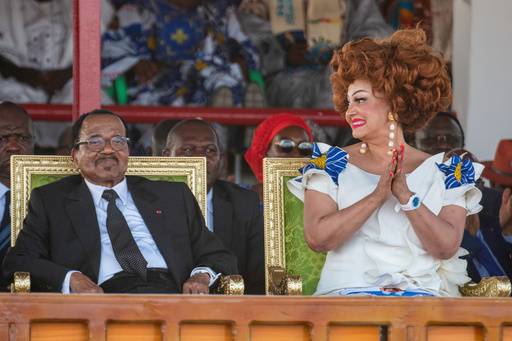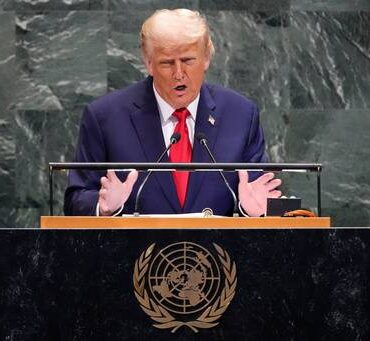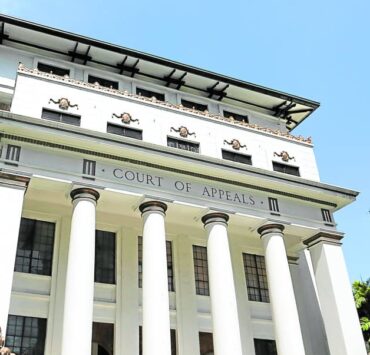World’s oldest president seeks 8th term—as Cameroon youth grumble

YAOUNDE, Cameroon — Elvis Nghobo tried to get into four different professional schools in Cameroon but could not make it. Frustrated, the 34-year-old turned to selling food at a market in Yaounde, the country’s seat of power.
Nghobo blames his woes on what he calls a corrupt education system which favors children of the elites. As the central African country prepares for Sunday’s presidential election, he said he would not be heading out to vote.
He called the results a foregone conclusion for 92-year-old Paul Biya, the world’s oldest president, who has ruled for Nghobo’s entire life.
“He is already too old to govern, and it’s boring knowing only him as president,” Nghobo told The Associated Press.
The sentiment is shared by millions of the country’s young population, whose median age is 18, in perhaps the most dramatic example of tension between Africa’s youth and the continent’s many aging leaders.
Biya is seeking an eighth term in office in a single-round presidential election where 8.2 million Cameroonians are registered to vote.
He first became president in 1982 following the resignation of his predecessor, Ahmadou Ahidjo, and has ruled since then. He was declared the winner of seven subsequent elections. Cameroon has seen just two leaders since independence in 1960.
“In the face of increasingly difficult international environment, the challenges facing us are more and more pressing,” Biya said in announcing another run. “In such a situation, I cannot shirk my mission.” He did not give details.
Hungry for jobs
The country’s youth are hungry for jobs. According to World Bank data, the unemployment rate stands at 3.5 percent, but 57 percent of the labor force aged 18 to 35 works in informal employment.
Despite Cameroon being an oil-producing country that is experiencing modest economic growth, young people say the benefits have not trickled down beyond the elites.
The country also faces escalating security crises. In the western region, a secession fight has long brewed mainly among English-speaking citizens who claim they are marginalized by the French-speaking majority. In the north, the Boko Haram insurgency spills over from neighboring Nigeria, with armed groups routinely attacking border towns.
Biya in this election is challenged by nine opposition candidates, including some former allies and appointees. They include Issa Tchiroma Bakary, who until recently served as the minister of employment, and Bello Bouba Maigari, who was minister for tourism.
Another candidate who ran against Biya in 2018 and came second with a relatively strong 14 percent of votes, Maurice Kamto, was barred from contesting in this election. The electoral commission said it disqualified Kamto because his party was also sponsoring another candidate, a claim Kamto’s lawyers rejected. Kamto was arrested after the last election for demanding fairness.
Widely unpopular
Analysts say Cameroon’s elites are unwilling to disrupt the political order after decades of Biya’s rule.
“It is no question that (Biya) is widely unpopular in the country, but he definitely has the support of a lot of the elites and customary rulers through corruption and a money network. That sort of plays a big role in making sure he wins,” said Nat Powell, Africa analyst at Oxford Analytica.
The government has rejected such allegations in the past.
The ruling party, Cameroon People’s Democratic Movement, controls the legislature with 94 of 100 seats at the senate and 152 of 180 at the national assembly.
Biya’s health has routinely been a topic of speculation as he spends most of his time in Europe, leaving governance to key party officials and family members.
“Part of it is he wants to be president ‘til he dies, but part of it is also entourage and the ruling party,” Powell said. “The party wants to keep him there because he is the stabilizing force, because as long as he lives, that keeps everything together.”
At the University of Yaounde I, Manoung Wilfried, a 27-year-old geoscience student, sat near a staircase, looking pensive. He said he would vote in the election, but none of the candidates has convinced him, and he decried Biya’s participation.
Wilfried cited patriotism as his only motivation for voting.
“For the good of the country, he should hand over the country’s leadership to someone else who can better understand and solve the problems faced by the youths,” he said of Biya.
Like many youth, Nghobo has lost faith in the electoral system which he believes is designed to keep Biya in power.
“Power change in this country can come through other means but not through the ballot box,” he said.

















